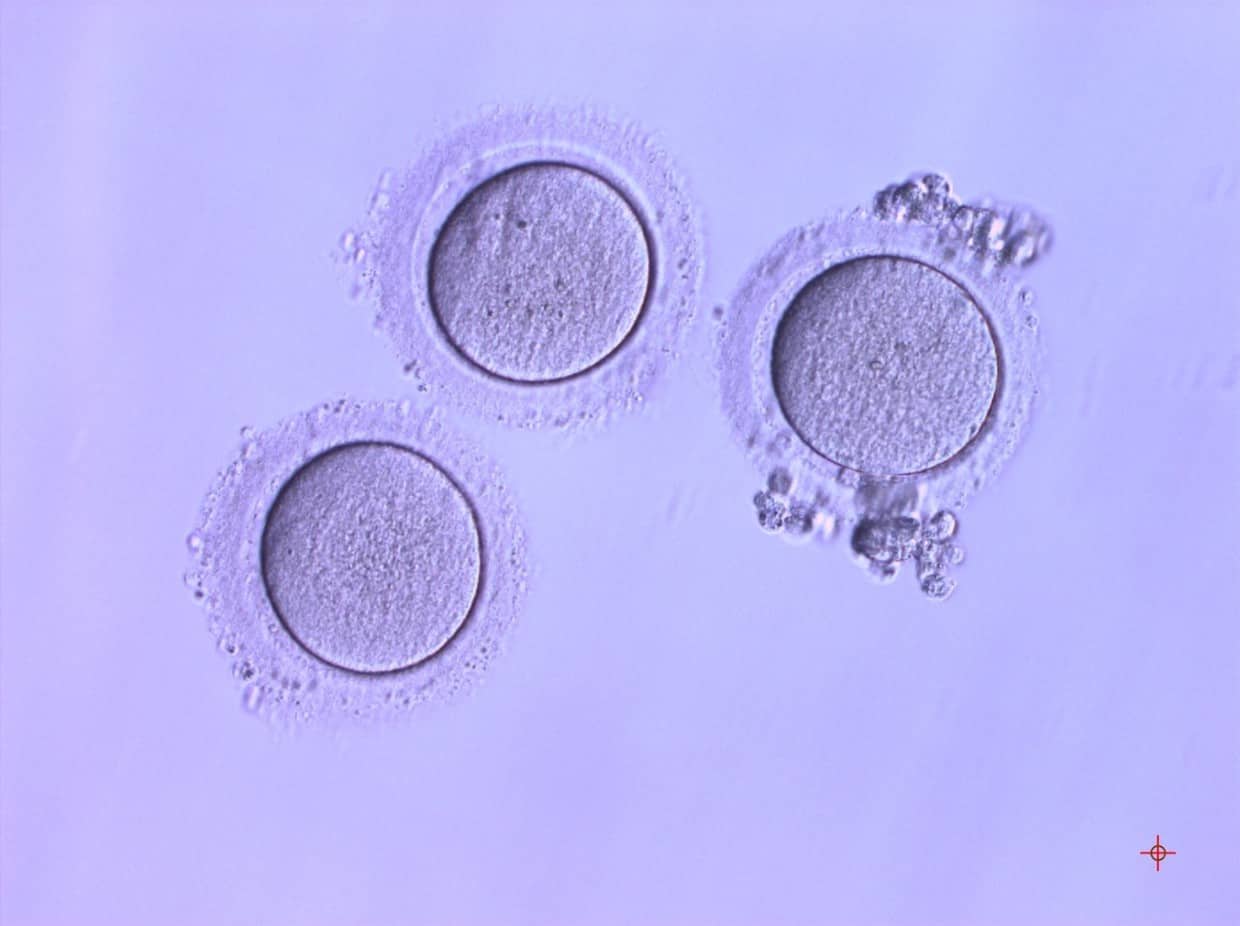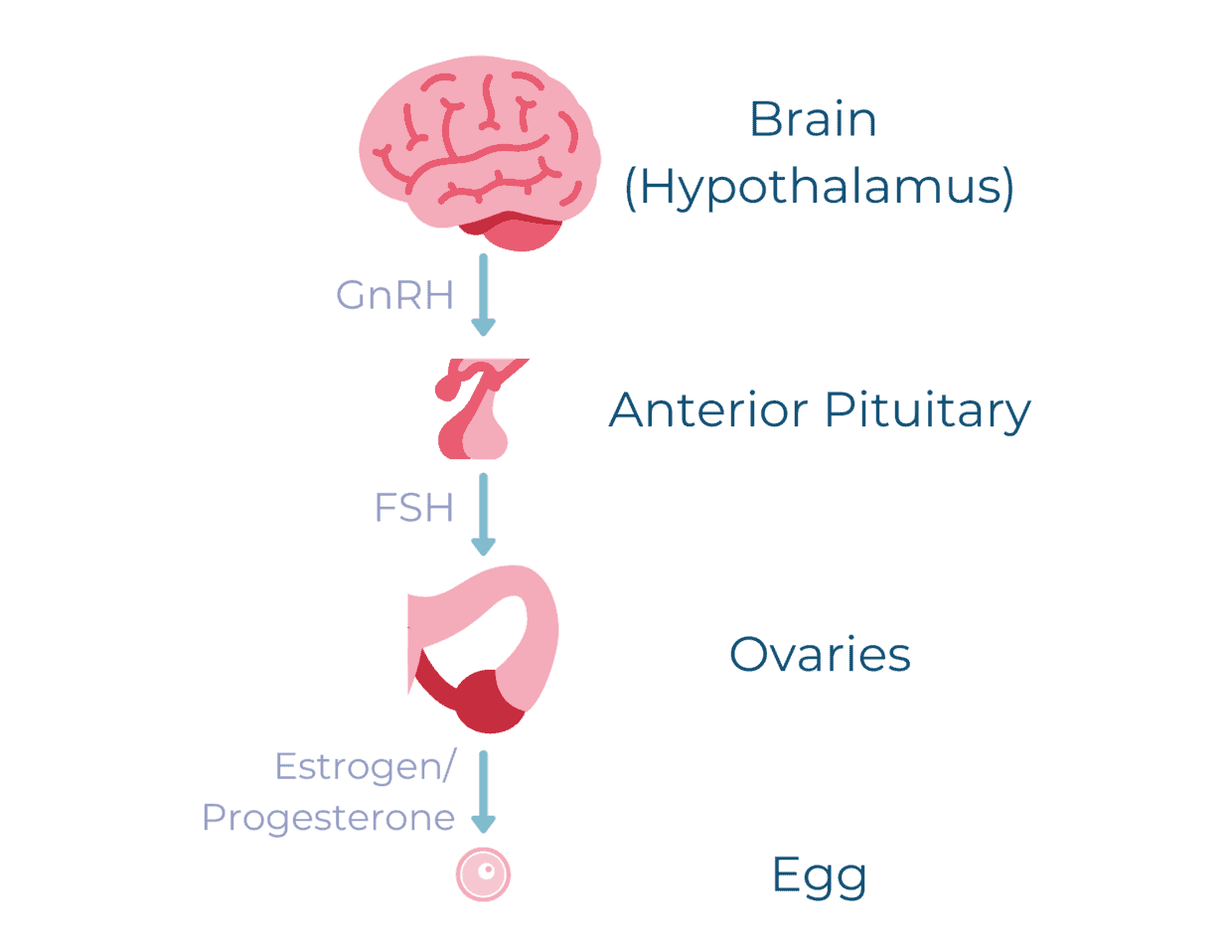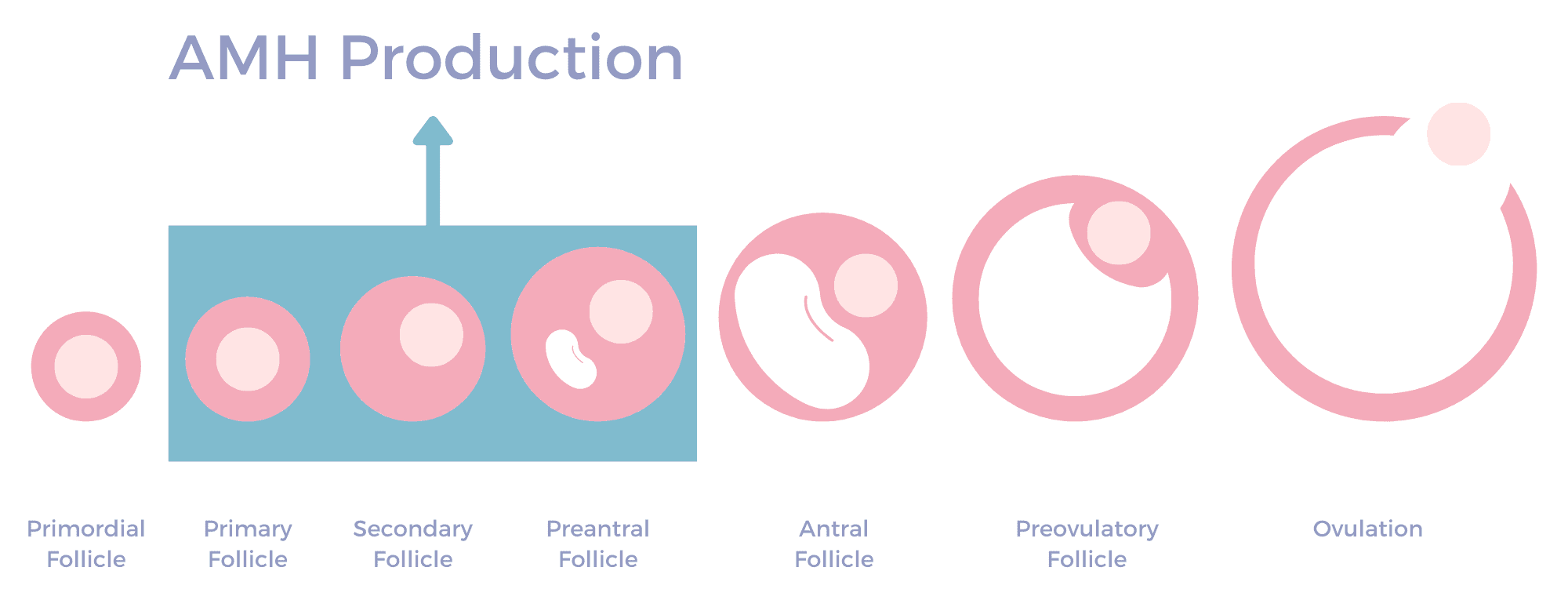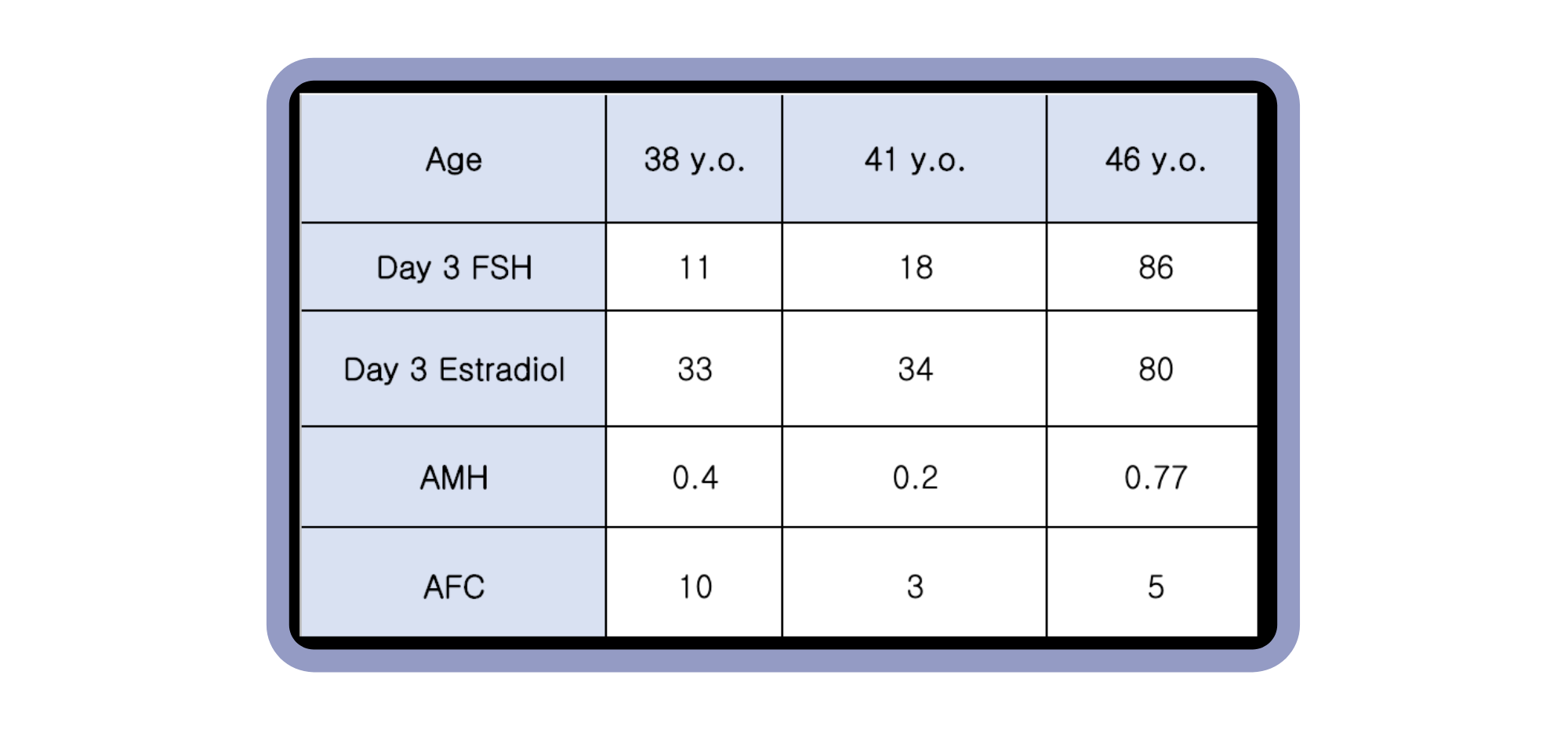Assessing Egg Quantity and Quality
Women are born with their lifetime supply of eggs already inside their ovaries. With each menstrual cycle, eggs are released, with their quality and quantity diminishing over the years.
The following blood tests and ultrasound can help us determine if you are ovulating and your overall fertility potential. However, it is important to remember that numbers aren’t everything. It only takes one good embryo to develop into a baby!

Antral Follicle Count (AFC)
Antral follicle count is an ultrasound study, performed transvaginally. It is done in the early phase of your menstrual cycle, in which your doctor or sonographer counts the number of egg-containing follicles that are developing on your ovaries. You will have a clear view of your follicles in images projected onto a screen in the exam room.
What does my Antral Follicle Count mean?
- High: A high number of antral follicles typically means that the ovaries will respond well to ovarian stimulation, making for a higher chance at pregnancy.
- Medium-Low: An antral follicle count in this range may indicate a declining ovarian reserve. However a good response to ovarian stimulating medicine is entirely possible.
- Low: A low antral follicle count indicates low ovarian reserve, but it does not mean it is impossible to conceive.
Will my Antral Follicle Count be the same each month?
No, your Antral Follicle Count will differ month by month. Every time you ovulate, your body produces more follicles. Your AFC one month is not a perfect indicator for your AFC the next month.
Day 3 FSH Value
Follicle stimulating hormone (FSH) is the hormone that causes follicles to grow and is one of the most important hormones involved in your cycle. It is the main hormone involved in producing mature eggs in the ovaries.

Why is my FSH Value taken on Day 3?
By measuring early in a woman’s cycle, we can tell how difficult it is to get a follicle growing. Measuring on day 2 or 3 of a menstrual cycle gives a strong indication as to whether she has normal ovarian reserve.
How is my FSH Value taken?
FSH is taken via a blood test at our center during monitoring hours. All blood taken during monitoring hours is analyzed in house.
Does my FSH value change every month?
Generally, the baseline FSH level fluctuates from month to month. However, if the level is very high, medications may be prescribed to lower it before starting ovarian stimulation.
AMH (Anti-Mullerian Hormone)
Anti-Mullerian Hormone, or AMH, is another predictor of ovarian reserve. This level generally decreases by age but does not necessarily tell the full story of ovarian potential. AMH must be combined with other diagnostic testing for a thorough assessment.

How is AMH different from FSH?
AMH is the hormone that is released by the follicle during development. Unlike FSH, it does not lead to follicle growth.
How is AMH taken?
AMH is taken by drawing blood at any point in your cycle. It is then sent out for outside analysis, which can take up to two weeks.
What do my AMH levels mean?
Higher AMH values usually mean that a woman’s ovarian reserve is normal. Lower numbers (less than 1 ng/mL) may indicate a woman with a low or diminished ovarian reserve.



